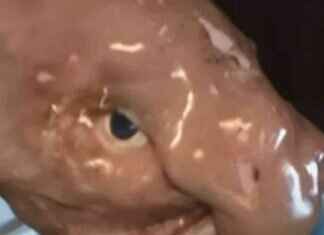China’s head of state and party leader Xi Jinping cemented his power with the largest government formation in ten years. At the annual meeting of the People’s Congress on Sunday in Beijing, the almost 3,000 delegates who were not freely elected approved the appointment of further close Xi confidants to the new government, thus completing the reshuffle. On Saturday, the party leader’s longtime political companion, Li Qiang (63), was made the new prime minister and successor to the outgoing Li Keqiang (67), who belongs to a different political camp.
As expected, Parliament also voted in favor of the proposals for the posts of four deputy prime ministers and cabinet members at its annual session in the Great Hall of the People. The former chief of staff and longtime Xi confidante Ding Xuexiang (60) became the acting first vice premier. The economic expert He Lifeng (68) is to take care of the economy and finance as another deputy prime minister. He takes on the role of the retiring Liu He (71), who led the trade talks with the United States.
Familiar in Post
General Li Shangfu (65), most recently influential head of weapons development in the military commission and head of the manned space program, will be the new defense minister. In 2018, under then-President Donald Trump, the United States imposed sanctions on the general personally and on his arms development department. Like his predecessor Wei Fenghe, Li Shangfu is the only military representative in the Chinese cabinet.
The appointment of more of Xi Jinping’s confidants to the government met with mixed reactions. “They are yes-men, but they are capable,” said Jacob Gunter from the Merics China Institute in Berlin. “There could be an echo chamber where there is no one like (outgoing premier) Li Keqiang left, able to offer dissenting opinion and add other perspectives, and perhaps advocate for a moderate agenda.”
On the other hand, it can also be argued that a circle of close confidants “without factions” finally means that there can be “honest discussion” in the management team, said Gunter. This is necessary to tackle the many structural problems in the Chinese economy. However, he tends to be skeptical and concerned about the echo chamber, said the Merics expert.
element of surprise
What was surprising was that Xi Jinping retained key members of the old finance and trade teams. In times of economic uncertainty, this is apparently intended to strengthen confidence in the economy. The 65-year-old Yi Gang, whose dismissal was expected, will remain head of the central bank. Finance Minister Liu Kun (66) and Trade Minister Wang Wentao (58) also retained their posts.
“It’s a pragmatic choice because the new leaders need professional experts to deal with complicated economic and financial challenges,” said Zheng Zhiwei, chief economist at Pinpoint Asset Management of finance agency Bloomberg, confirming the finance officials. “The leadership knows that the top priority is to build trust. This decision is a step in that direction.”
Business
The People’s Congress ends Monday approving the outgoing government’s work reports and budget with a sharp 7.2 percent increase in defense spending. After the end of the strict zero-Covid strategy with far-reaching lockdowns and forced quarantine in December, the government believes that the second largest economy will recover this year and expects growth of “around five percent”.
Xi Jinping was confirmed on Friday for an unprecedented third term as president. At the party conference in October, the 69-year-old had defied previously respected age and term limits: the 69-year-old had a permanent leadership role anchored in the party constitution. He could even remain in office for life. In doing so, he ties in with the founder of the state and “eternal revolutionary” Mao Tsetung (1893-1976), who, however, brought chaos to the country.
Xinhua to People’s Congress The Diplomat on new Defense Minister Merics



















